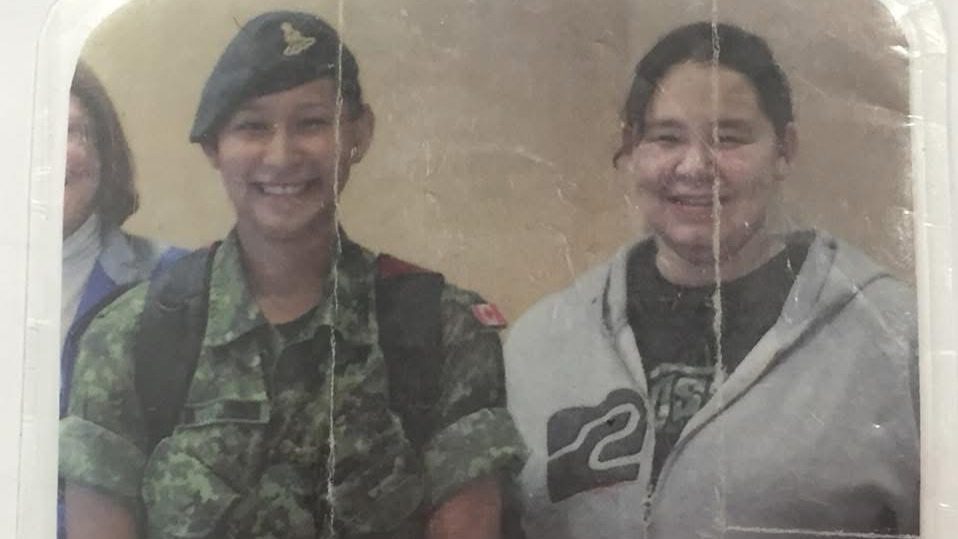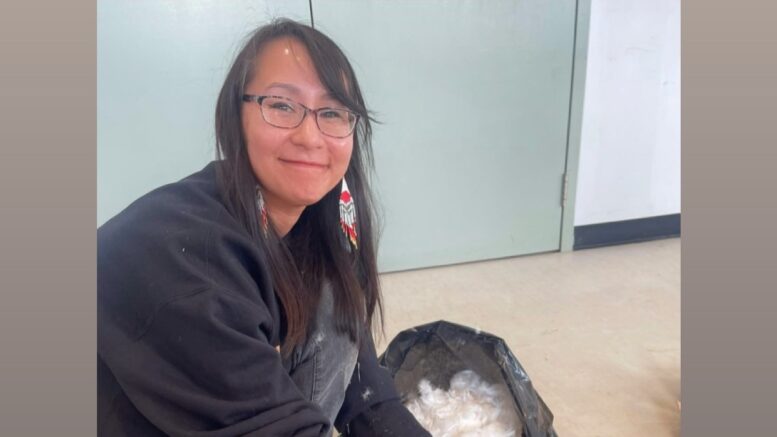An Inuvialuit creator from Paulatuk has been named to TikTok Canada’s 2025 Indigenous Visionary Voices list.
The list created for Indigenous History Month spotlights 15 Indigenous creators who are using TikTok to build community and keep their cultures strong from across the country. Esther Wolki joins Inuk knowledge-keeper Hovak Johnston and Dene filmmaker Morgan Tsetta this year as NWT’s three honourees.
Wolki has gained more than 34,000 followers on her TikTok account. Her content includes sewing, woodworking, and unfiltered reflections on life in the North.
Her platform began to grow during the pandemic, shortly after she returned home from military service and treatment for PTSD. One viral video about “deadly auntie bangs” brought her wider attention.
But for Wolki, the recognition means more than popularity.
“I hope it helps with typical stereotypes that people see about the North, like how the government doesn’t pay, or how people think we’re getting free money,” she said.
“That racism is still strong in the health system and the police system. I hope it shows that the cost of living is so high that our children get the full blow. They’ll never experience what others across Canada see every day. I hope that dark part gets shown to the rest of the world.
Wolki also uses her account to promote other Indigenous artists and small businesses in the North.
“I’ve tried posting videos so people know I’m not the only person selling things. There are other craftspeople in the communities,” she said.
“A lot of people sell Indigenous stuff here and in other communities… I’ve tried multiple times to help other craft stores make money. It helps some people that way.”

Esther Wolki and her sister Celina Wolki (right). (Photo courtesy of Esther Wolki)
Mental health is another central focus for Wolki. She shares her own experiences to encourage others to seek support.
“I myself have gone through at least eight or nine years of mental health work, seeing counselors, seeing someone for trauma and PTSD,” she said.
“I would tell people, including family members, that just telling their story to a mental health worker helps so much. If they don’t feel like talking to someone like that, they can always talk to somebody in the community.”
Wolki also encourages sewing groups for women and outdoor activities like hockey for men, as both offer ways to express emotions and build connection.
“It’s just to remind people about their mental health and to check up on their friends once in a while… It can save a life – just reaching out and letting someone know that you need to talk. Something small like that does so much for somebody on their darkest day,” she said.
Wolki also speaks out about the high cost of living in the North and its effect on mental health.
“Sometimes you can’t get food. When you are struggling to buy food and pay bills, that also becomes a mental health issue. You feel like you can’t provide for your family. Our voices don’t get heard. We don’t feel seen. And when we’re not seen, we can’t explain how much we are suffering.”
Looking ahead, Wolki hopes to launch a YouTube channel focused on community stories.
“I was hoping to start a YouTube channel about stories from Elders, stories of hunting, how people live with mold in their homes and how that affects the whole family, and stories about how the health system treats our Elders and the rest of the community,” she told CKLB.
She also invites Canadians to visit the North and learn more firsthand.
“If you come to the North, people are very welcoming. Anybody in our community would say, ‘Come and eat at my house,’” Wolki said.
“Don’t just stop in the bigger communities. Visit the smaller places too. The land, the knowledge, the stories, and the people you meet will enrich your life.”





